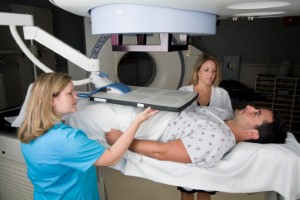News by Profession
- Audiology News
- Cardiac Physiology News
- Dietetics News
- Biomedical Science News
- Pharmacy News
- Phlebotomy News
- Radiography News
- Speech Therapy News
- Podiatry News
- Doctors News
- Sterile Services News
- Mental Health News
- Nursing News
- Mortuary News
- Physiotherapy News
- Occupational Therapy News
Doctors Jobs by Duration
News Links
Urgent cancer care requires improvement

Latest Jobs
It is one of the biggest killers across England but a new report has shown that cancer patients requiring urgent treatment are being considerably let down by the NHS in the country.
A study by the Royal College of Physicians and Radiologists assessed the level of care that is carried out in accident and emergency (A&E) services in hospitals as well as from GPs and district nurses. With the deadly illness highly prevalent across England and other parts of the UK it is seen as imperative that people that are afflicted with the disease are seen to immediately. It can go undetected for a substantial amount of time so both identifying the cancer early on and starting treatment soon after is important to ensure that a person has the best chance possible of making a full recovery.
However, the organisation's report found that there were a number of significant problems within the sector when it came to treating people who require urgent attention for their current state of health. The study revealed that there was still a level of confusion when it came to dealing with people needing urgent treatment and it meant health officials were unsure of what best action to take. This confusion meant that delays were evident and in some cases there was inappropriate care administered to the affected patient.
These findings have forced the Royal College of Physicians and Radiologists to call for a radical reform of emergency admissions. This was in light of the fact that since 2000/1 the amount of unplanned entries into hospital had soared to 300,000, putting an extra strain on England's health sector. However, a number of key officials within the sector have acknowledged the stress and pressure that the health industry is under in order to meet the requirements of those that needed unplanned treatment.
Dr Chris Roseveare, president of the Society of Acute Medicine, said: "This can be particularly problematic when a patient arrives on the acute medical unit outside regular working hours and when acute medical teams may struggle to obtain the necessary information about a patient's treatment plan."
Leading charities such as Cancer Research UK were also in support of the report, highlighting the improvements that hospitals need to make to ensure that patients are getting the right level of care when they are admitted into health facilities across England.
"Patient care and joint decision-making must be at the centre of cancer services now and in the future. As clinical oncologists, an important part of our role is to ensure that patients understand their treatment and can decide what is best for them. Cancer treatment cannot be a one-sided process," Martin Ledwick, head information nurse at Cancer Research UK, explained.
Cancer is a major problem across the country with both the breast and lung forms of the disease proving to be significant killers. Care for the latter has been severely criticised of late with the UK Lung Cancer Coalition highlighting the lack of access for patients to the use of specialist nurses to help them overcome their condition.
A report by the coalition revealed that the poor level of treatment could be having an increasingly detrimental effect on people that have been diagnosed and more needs to be done to ensure that this trend does not continue. Access to a specialist is integral to aid a person's survival and the report noted that around a third of patients did not have this available to them.
As has been highlighted by the Royal College of Physicians and Radiologists and the UK Lung Cancer Coalition, the level of care surrounding cancer is increasingly important. Officials from both organisations have noted that improving these services and the way the NHS treats people with cancer can significantly raise the level and standard of treatment across England and the rest of the UK.
Contact the specialist recruitment company, Mediplacements, to see the latest UK medical jobs.
written by Megan Smith
Related News
-
More doctors needed, as patients...
More doctors are urgently needed in the UK, as a new report reveals many patients do not feel comfortable...
-
Doctors presented with new list...
UK doctors have been presented with a new list of environmental risk factors for dementia that could help...
-
Doctors treating more diabetic...
GPs and hospital doctors are receiving more visits from diabetic patients than ever before, as new figures...
-
Doctors should prescribe exercise...
Doctors practising in the UK should be prescribing exercise to overweight or obese patients on a more regular...